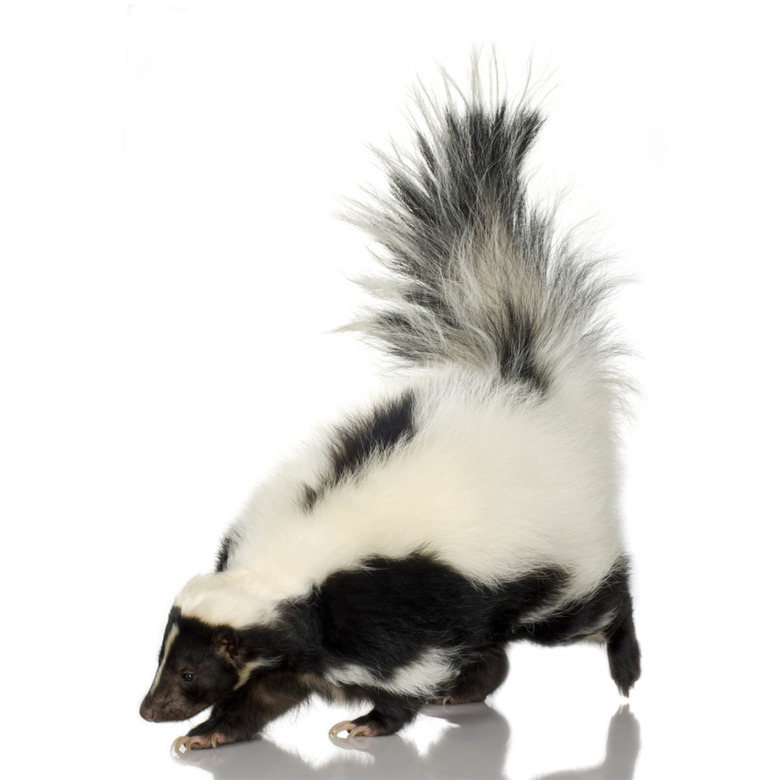Skunk Spray Facts
If you have a pet skunk, you know that even tame skunks will spray unless they have been de-scented. Luckily, most baby skunks available through breeders are de-scented — but raising intact skunks is not unheard of.
Understanding Skunk Spray
Understanding Skunk Spray
Skunk spray is an oily substance made up of seven volatile components. Although the composition and strength of spray varies among skunk species, the main component in skunk spray is sulfur, which is responsible for the strong odor. Skunk spray is stored in anal glands hidden in the rectum. Both males and females have the glands and are able to produce spray.
How Pet Skunks Spray
How Pet Skunks Spray
Skunks can spray either in the form of a cloud — which covers a larger surface and can serve to distract predators in pursuit — or as a direct stream if the enemy is within range. Skunks can be extremely accurate when spraying, easily hitting targets 6 feet away. Skunks can spray at least six times in succession before running out. Just a few hours later, their oil is replenished and they can spray again.
Warning Signs of Spraying
Warning Signs of Spraying
A skunk might stomp his front feet on the ground as a warning if he feels he's being pestered by your dog or another attacker. He may show his teeth. He might stand up on his hind paws to appear bigger, and may hiss, snarl or charge toward the perceived predator, which could be a stray cat on your back porch or the repairman walking into the house and surprising your pet skunk in the kitchen.
Dealing With the Consequences
Dealing With the Consequences
Skunk spray can irritate the eyes and nose if not washed off properly and as quickly as possible. If your pet skunk sprays, bathe the victim with a mix of 3 percent hydrogen peroxide, baking soda and liquid detergent. Wait five minutes before rinsing. Tomato juice is not an effective skunk odor remover. You can wash hardware with the same solution, or bleach and water; for fabrics and upholstery, you can try vinegar, skunk-spray-specific retail products and other cleaners, but results vary. Ultimately, you may replace a lot of textiles if you harbor a skittish skunk.
